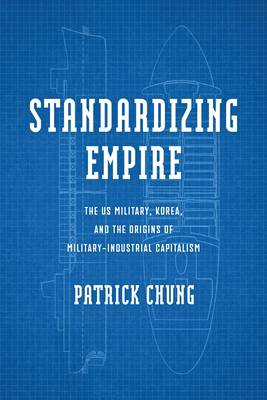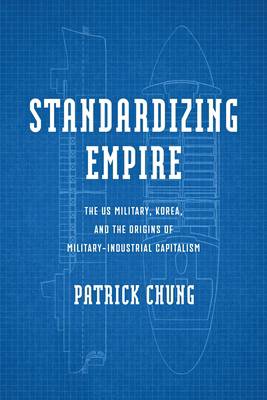
- Retrait gratuit dans votre magasin Club
- 7.000.000 titres dans notre catalogue
- Payer en toute sécurité
- Toujours un magasin près de chez vous
- Retrait gratuit dans votre magasin Club
- 7.000.0000 titres dans notre catalogue
- Payer en toute sécurité
- Toujours un magasin près de chez vous
Standardizing Empire
The Us Military, Korea, and the Origins of Military-Industrial Capitalism
Patrick Chung
79,45 €
+ 158 points
Description
Standardizing Empire traces the origins of today's United States-led capitalist world economy. The nation's foreign policy during the Cold War saw two unprecedented developments: the continuous global deployment of US soldiers and the creation of a permanent worldwide military base network. In the process, the US military came to control the flow of billions of dollars, large-scale construction projects at home and abroad, the purchase of countless goods and services, and the employment of millions of soldiers and workers. In other words, the Cold War US military became the world's leading economic actor.
To illuminate the political and economic consequences of the US military's globalization, Patrick Chung focuses on its activities in South Korea between the Korean and Vietnam Wars. Chung shows how the Korean War and the subsequent militarization of South Korea became an important site for the spread of a new economic system, which he calls military-industrial capitalism. Sustained by providing the infrastructure and materials for the US military's globalization, military-industrial capitalism influenced the development of governments, corporations, and workers throughout the US-led "free world." As military-industrial capitalism expanded, more of the world depended on the physical and administrative standards used by the US military. Ironically, the creation of a globalized economy facilitated both South Korea's "economic miracle" and the decline of US industrial might. To clarify how these broader developments transformed everyday life in South Korea and around the world, Standardizing Empire explores three of South Korea's leading multinational corporations today: shipping company Hanjin, steelmaker POSCO, and car manufacturer Hyundai. These case studies not only trace the companies' early ties to the US military but also explain how they came to produce, sell, and employ workers worldwide, including in the United States.Spécifications
Parties prenantes
- Auteur(s) :
- Editeur:
Contenu
- Nombre de pages :
- 344
- Langue:
- Anglais
- Collection :
Caractéristiques
- EAN:
- 9781512828733
- Date de parution :
- 03-02-26
- Format:
- Livre relié
- Format numérique:
- Genaaid
- Dimensions :
- 152 mm x 229 mm

Les avis
Nous publions uniquement les avis qui respectent les conditions requises. Consultez nos conditions pour les avis.






